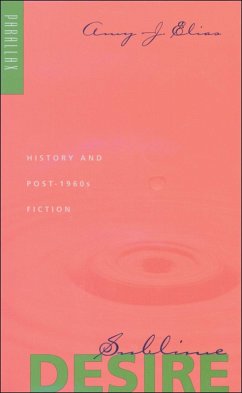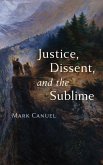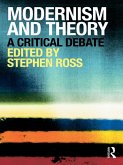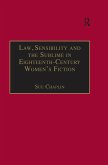Co-winner of the Perkins Prize from the Society for the Study of Narrative LiteratureHas twentieth-century political violence destroyed faith in historical knowledge? What happens to historical fiction when history is seen as either a form of Western imperialism or a form of postmodern simulation?In Sublime Desire, Amy Elias examines our changing relationship to history and how fiction since 1960 reflects that change. She contends that postmodernism is a post-traumatic imagination that is pulled between two desires: the political desire to acknowledge the physical violence of twentieth-century history, and the yearning for an escape from that history into a ravishing realm of historical certainty. Torn between these desires, both historical fiction and historiography after 1960 redefine history as the "e;sublime,"e; a territory beyond lived experience that is both unknowable and seductive. In the face of a failure of Enlightenment ideals about knowledge and the West's own history of violence, post-World War II history becomes a desire for the "e;secular sacred"e; sublime-for awe, certainty, and belief.Sublime Desire is an eloquent melding of theory and practice. Mixing the canonical with the unexpected, Elias analyzes developments in the historical romance genre from Walter Scott's novels to novels written today. She correlates developments in the historical romance to similar changes in historiography and philosophy. Sublime Desire draws engagingly on more than thirty relevant texts, from Tolstoy's War and Peace to Jeanette Winterson's Sexing the Cherry, Charles Johnson's Dreamer, and Charles Frazier's Cold Mountain. But the book also examines theories of postmodern space and time and defines the difference between postmodern and postcolonial historical perspectives. The final chapter draws from trauma theory in Holocaust studies to define how fiction can pose an ethical alternative to aestheticized history while remaining open to pluralism and democratic values. In its range and sophistication, Sublime Desire is a valuable addition to postmodernist studies as well as to studies of the historical romance novel.
Dieser Download kann aus rechtlichen Gründen nur mit Rechnungsadresse in A, B, BG, CY, CZ, D, DK, EW, E, FIN, F, GR, HR, H, IRL, I, LT, L, LR, M, NL, PL, P, R, S, SLO, SK ausgeliefert werden.









